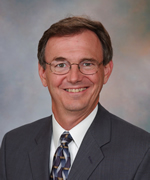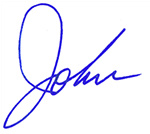![]()
President's Update, February 2017
 |
| John C. Morris, M.D. ATA President |
A few days ago you should have received a statement from ATA leadership about the recent executive orders from the new administration limiting international travel for persons from several predominantly Muslim countries. As is outlined in the statement our society enjoys a highly diverse membership and also hosts non-members to our meetings from all corners of the earth. The ATA board of directors and leadership feel that this diversity and the free exchange of scientific and clinical information is critical to our mission of being "the leading organization devoted to thyroid biology and to the prevention and treatment of thyroid disease through excellence in research, clinical care, education, and public health". Our values include "worldwide collaboration and collegiality". These items which we hold so critical to our existence are threatened by the immigration actions that will limit the ability of our members and attendees from other parts of the world to participate in our meetings, share their scientific advances, and carry back the latest progress regarding thyroid disease to their home countries and peoples. If you have not read the statement previously, I hope you will do so now and support the free exchange of science for which it calls.
One of the four major strategic initiatives of the board of directors is to explore ways to catalyze innovative, meaningful and fundable thyroid research. One of the mechanisms of achieving this is for ATA to sponsor a transcriptome data repository housing the large volumes of sequence and expression data related to thyroid topics, which would be available to our members. Reuse of these data by additional investigators has considerable potential to enhance investigation into underappreciated mechanisms of thyroid hormone action, thyroid cell signaling, and thyroid cancer biology and to foster collaboration between groups of investigators pursuing thyroid research. Our research committee and board of directors has had preliminary discussions with Neil McKenna, Ph.D. who directs such a depository called the Nuclear Receptor Signaling Atlas (NURSA), which is housed at the Baylor College of Medicine in Houston. Although these discussions are only preliminary at present, there is considerable enthusiasm for pursuing a collaboration with NURSA which could provide the infrastructure needed for ATA to support a thyroid-related repository. Of course there will be a financial cost of constructing and maintaining components of the project such as the database that must be considered in the decision making. We would very much appreciate any thoughts you as ATA members might have about this idea, and I invite you to contact me, our research committee chair Motoyasu Saji, and/or our board of directors liaison to the research committee Anthony Hollenberg with your comments – you may send via thyroidexec@thyroid.org as well.
Finally I wish to remind you that it is not too late to register for the ATA Spring Symposium. As in previous years, our symposium will precede the Endocrine Society annual meeting in Orlando, on Friday afternoon March 31. The title, "Hypothyroidism – Where Are We Now?" says it all. The half-day meeting, which is being co-chaired by Jacquie Jonklaas and Antonio Bianco (both of whom co-chaired our Hypothyroidism guidelines taskforce), promises relevant and updated new information on this fast-changing and all-important topic, the most common of thyroid function disorders. The outstanding symposium agenda includes at its end a panel discussion about thyroid hormone therapy that will include patients and their perspective about thyroid hormone replacement therapy. I invite you to review the agenda and watch Jacquie's video describing the exciting program. You can easily add to your Endocrine Society registration to include this thru the registration website. I hope to see you there!

John C. Morris, III, M.D.
President, American Thyroid Association
